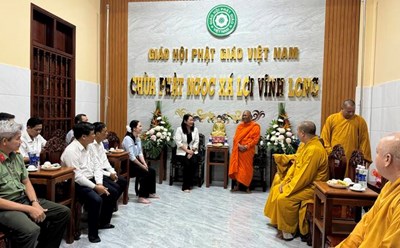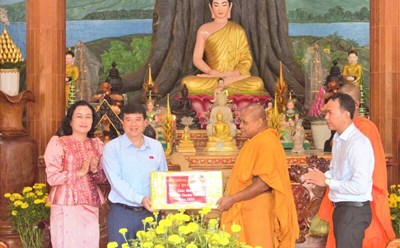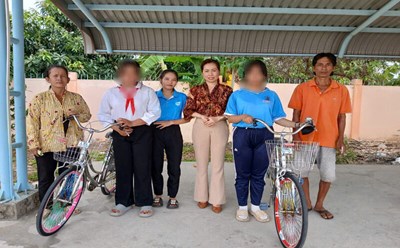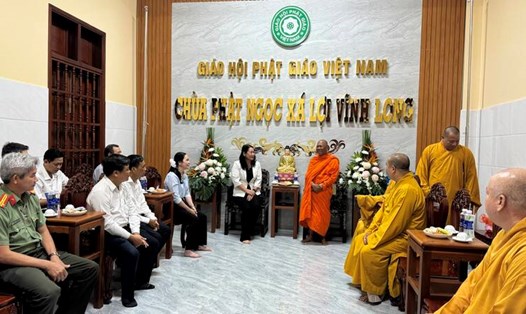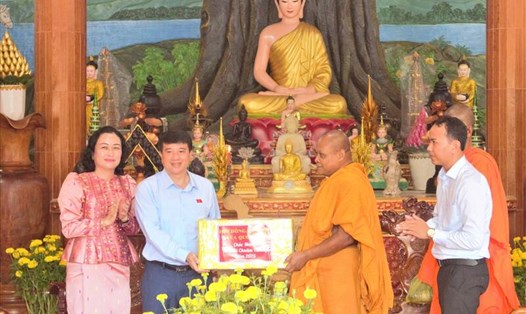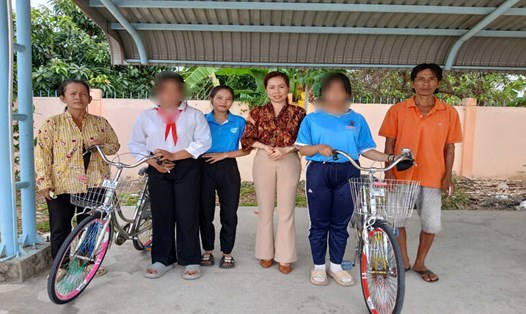Khmer students proud to learn to read and write at pagodas
At the summer classes at the pagoda, many Khmer students eagerly learn to read and understand more about their ethnic language and culture.
Thach Chau Ngoc, an 11th grade student at Pali-Khmer Tra Vinh Secondary School, said that this year is the second time she has learned Khmer at Ang Pagoda.
"Every summer, I learn many useful things not only from words but also from stories about culture and national ethics. Before, I could speak but could not write, now I can write letters in Khmer, Ngoc added.
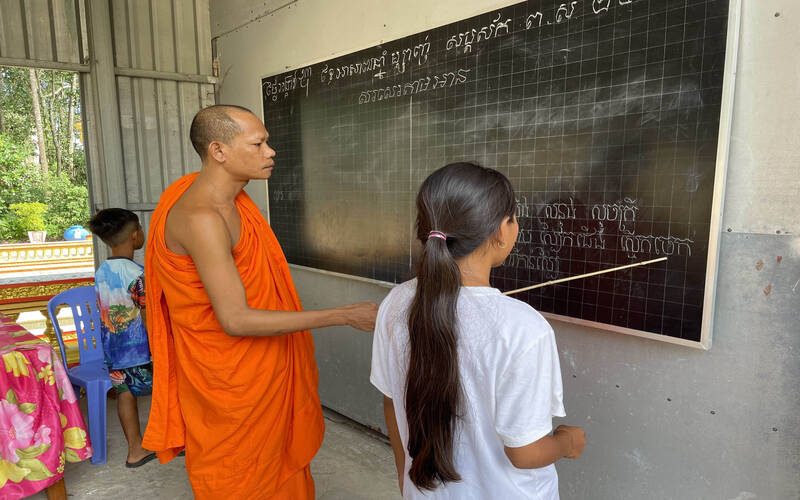
In the same class as Ngoc, Thach To Sovane Dra, a 9th grade student at Chau Thanh Ethnic Boarding School, said that he was very proud to learn the language and writing of his ethnic group.
"I hope to be able to teach the children in the neighborhood in the future. The teachers teach very easily and patiently, the learning atmosphere is very fun, added young master dra.
According to Venerable Thach Do Ra, one of the people who directly teaches classes and classes is divided into many groups according to their qualifications, studying both in the morning and afternoon. In addition to writing, we also integrate ethics, history, and traditional rituals so that students understand their roots and live true to their national identity, said Venerable Thach Do Ra.
Proposal to support Khmer teachers at pagodas
Talking to Lao Dong, Ms. Thach Thi Thu Ha - Director of the Department of Ethnic Minorities and Religions of Vinh Long province, said that currently the whole province has 156 Khmer pagodas, most of which organize summer literacy classes.
In the 2024-2025 school year alone, nearly 36,000 students will study Khmer at 125 schools and pagodas. Proper support will create motivation for classes to continue to maintain and spread.
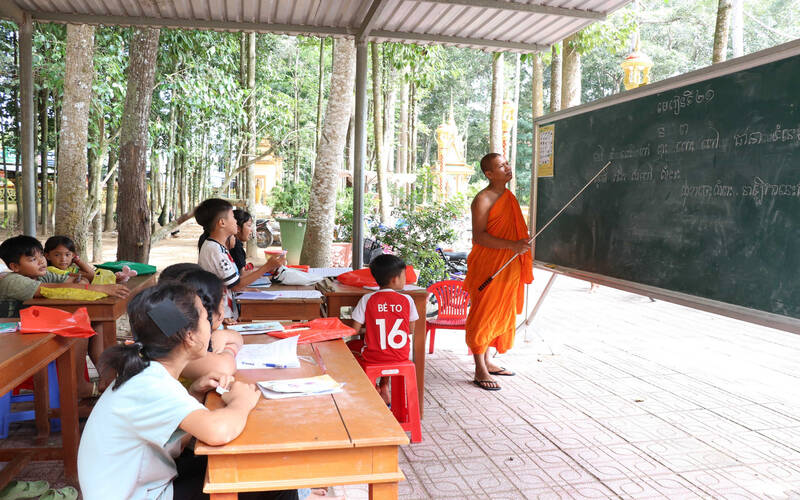
According to Ms. Ha, previously, in Tra Vinh province (before the separation), Khmer teachers were supported with 35,000 VND/teaching lesson according to Resolution No. 13/2020.
Vinh Long's consideration of issuing a similar policy is extremely necessary to recognize and encourage those who are silently contributing to the conservation of ethnic culture.
"We are advising the Provincial People's Committee to issue support policies for people who directly teach Khmer at pagodas in the province, especially monks and Achar. This is the core force contributing to preserving the language, writing and culture of the Khmer people, Ms. Ha emphasized.

